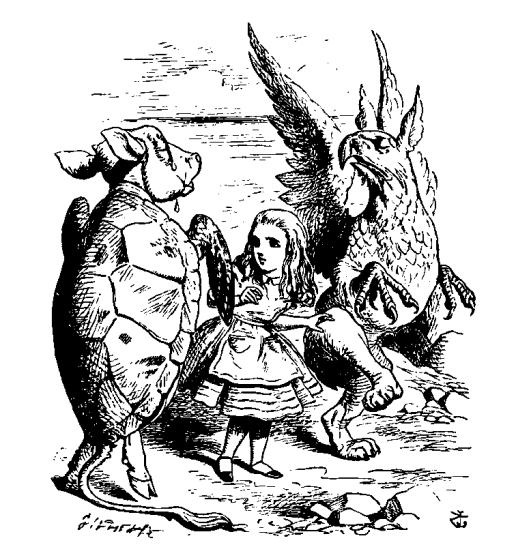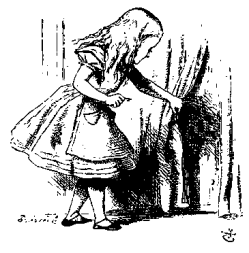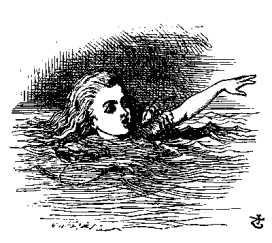Lost about Learning
学びの喪失
I must confess, I feel lost about learning. For almost 30 years of my life I have been a student of some kind, while for the last 20 years I have been a professional educator. The nine commentaries on learning that I have written for Five over the last two years reflect my curiosity and my confusion about learning in this contemporary moment. As an academic and artist I sometimes feel like a media cyborg, a digital/analog composite that produces and consumes information at an unforgiving pace—keeping up, creating content, and supposedly educating others for a world of accelerating expectations and uncertainties. Other times I feel like Alice from Alice’s Adventures in Wonderland because of the way that informational interconnectedness feels unfamiliarly familiar, equal parts exciting and anxiety-inducing, changing at every turn in a way that “we must run as fast as we can, just to stay in place.” *1

Reflecting on this, I watch my four-and-half year old daughter start to become a media creature herself—learning to write her own name, drawing elaborate pictures, and taking interest in mass media (especially Disney princess stories). So far she spends most of her time with books and almost no time with computerized screens—in fact she tries to convince her parents to spend less time on our computers—but I know that this will all change soon. In earlier essays I suggested how “media ecology” is also a matter of biological ecology and political ecology at the same time. Given that, I think about my daughter’s own opportunities for learning within such a multi-layered ecosystem and wonder: Should she have more chances to walk around trees and touch natural grass? When should she begin to learn a second language? Is public school the best option if I was bored all of my early school years? Most formal education is a kind of social (and thus political) training: schedules, classrooms, and textbooks all structure socially specific ways of thinking and being, whether they are Confucian, democratic, Muslim, capitalist, or some complicated combination. Which direction should I set my daughter towards if these years of education play such a large role in forming her worldview?

I get the sense she also feels like Alice much of the time, in the midst of constant and strange discovery. Of course almost everything she encounters is new to her at her age, but it is also true that everything in wider culture is becoming generally “curiouser and curiouser.” Whatever choices I try to make for my daughter, what do I really know in the face of so many unknowns within a perplexing, 21st century wonderland of uncontrolled economic growth, climate change, pervasive social media, and a 24/7 surveillance society? All of my concerns for her learning just a few sentences ago seem trivial when I ask myself “What kind of education makes sense for a child living in world where the global temperature will soon rise by 2oC, or in a country where Donald Trump is a serious contender for the next president?” What kind of parent I can be seems to link to what kind of teacher I can be. I ponder my enculturated blind spots, my assumptions, my “filter bubble,” and how they affect my understanding of what it means to educate and to be educated.

And so: I feel a little lost about learning right now, disoriented. Perhaps I should take some of the teacherly advice I sometimes give my own students about how learning is most fundamentally about becoming comfortable with ambiguity. This does not mean being comfortable with vague opinions, with indecision, or with ignorance; it is the willingness to embrace the psychological discomfort that comes from asking basic questions about everything around us, and then asking them again. So perhaps this disorientation is exactly what I need to feel in this moment: down a rabbit hole, among strange new creatures, and swimming in a sea of uncertain knowing—learning to be Alice as a way of learning to learn.
Figures:
Scenes from Alice’s Adventures in Wonderland, an apt metaphor for navigating our media ecologies.
Reference:
Carroll, Lewis. Alice’s Adventures in Wonderland. London: MacMillan and Co. 1866.
